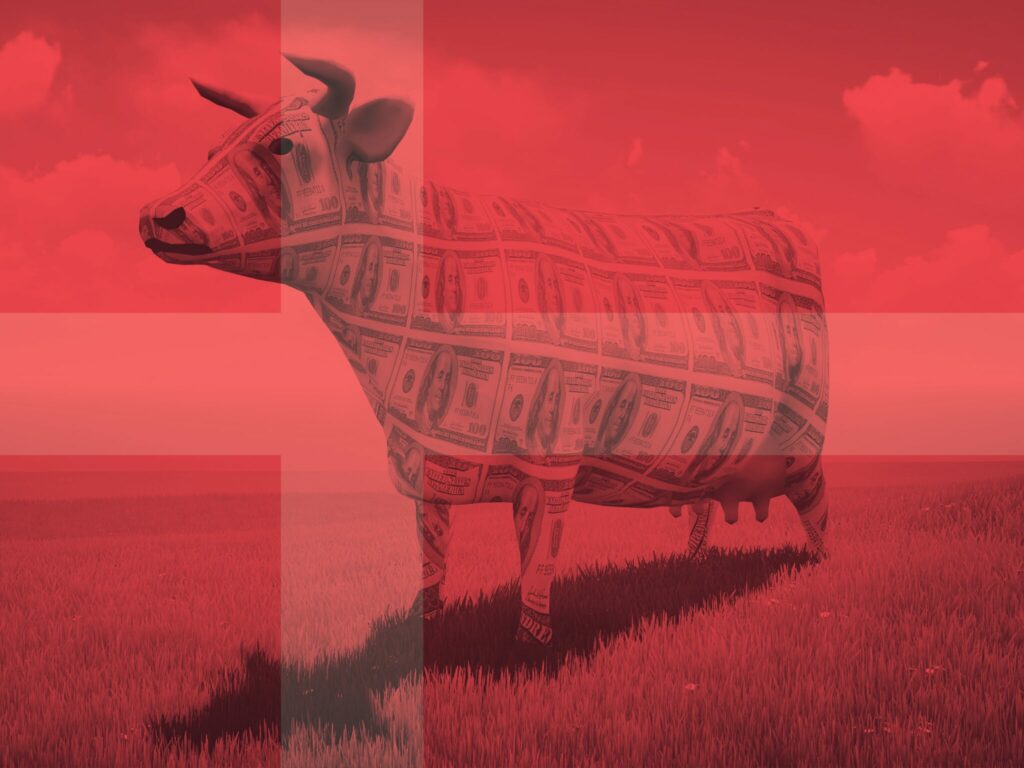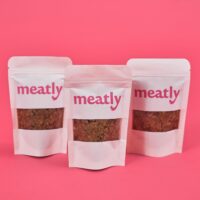
Image Credit: Green Queen
Every week we track the business, tech and investment trends in CPG, retail, restaurants, agriculture, cooking and health, so you don’t have to. Here are some of this week’s top headlines.
Denmark is set to introduce the world’s first carbon tax on agriculture later this year, with each cow costing $100 per year, as part of its efforts to meet climate goals. In the United States, a group of lawmakers has reintroduced the REAL Meat Act, aiming to ban federal funding for the cultivated meat industry. These policy moves signal significant shifts in both environmental and agricultural sectors.
In other news, we’ve wrapped the first season of our podcast in partnership with AgFunder: New Food Order, a nuanced investigation into the business of tackling our climate and social crises through food and agriculture. Read all about why we launched the podcast, and be sure to subscribe and share!
Our newsletter takes a lot of time and resources to produce. Make a one time or monthly contribution to help us keep it going. Whether it’s $5 or $500, every bit helps and shows us that you value our work.
1. Denmark to Impose World’s First Carbon Tax on Agriculture, with Each Cow Costing $100 Per Year – Green Queen
Denmark will introduce a tax on carbon emissions from agriculture later this year to meet its climate goals, becoming the first country to do so.
2. House Representatives Reintroduce Bill to Ban Federal Funding of Cultivated Meat – Green Queen
A group of lawmakers have reintroduced the REAL Meat Act, this time targeting federal investment in the cultivated meat industry.
3. Over 100 Organizations & Experts Ask FAO to Retract ‘Inappropriate’ COP28 Livestock Report – Green Queen
In an open letter, academics and organizations from across the world have asked the FAO to withdraw a livestock emissions report that they claim contains “significant methodological errors”.
4. AgFunder Assumes Management of Blue Horizon’s $100M Growth Fund – AgFunder
Taking on Blue Horizion’s growth fund elevates AgFunder’s assets under management to $300m and introduces a growth-stage portfolio to the firm.
5. Bezos Earth Fund Opens Alternative Protein Hub at Imperial College London, with Next Centre Set for Asia – Green Queen
A month after it unveiled the first Center for Sustainable Protein in North Carolina, the Bezos Earth Fund has opened its second alternative protein hub at Imperial College London. It plans to open a third centre in Asia soon.
6. The Race to Make Plant-Based Meat More Affordable – Green Queen
An often insurmountable price barrier is keeping many people from buying plant-based alternatives to beef, pork and chicken.
7. What Is Specialty Food? – The Checkout
Specialty foods, while “special”, still exist and depend on an industrial food system. The contradiction to specialty food, indeed that which is necessary to truly define it, is commodity food.
8. India: Zepto, a 10-Minute Delivery App, Raises $665M at $3.6B Valuation – TechCrunch
Zepto sells and delivers everything from grocery items to electronic gadgets to consumers in urban Indian cities within a short time frame.





